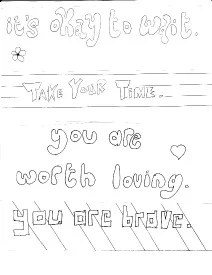Staying Well While Sheltering in Place for COVID-19
/We’ve been under “Shelter in Place” orders in the Bay Area for three weeks now. Time has felt alternatively condensed, expansive, and difficult to track for many of us who have had to change up our reliable, structured day-to-day habits that keep us well, healthy, and in contact with ourselves.
Right now, we are facing a “bizarre object,” a new virus that can be deadly for some, and painful and arduous for others. We are responding in the best way we can, by physically distancing ourselves from each other to prevent the transmission of the virus. What I’m finding is that when it comes to our mental health and how we’re coping with this, there is nothing new under the sun. The way each of us are facing this virus is a lot like how each of us face other disruptions, fears, chaos, and bizarreness in our lives. For folks who prefer to stay at home, it can feel good that everyone else is on board with this way of life, though it may also feel stifling and overwhelming to consider the reasons for this social change. For some folks, it can feel a lot like we’re avoiding each other for reasons other than public health, especially for folks who have a history of being fearful of others in general, or are used to feeling anxious about people rejecting or dismissing us. It can really mix people up to be forced to limit our social contact and ease of moving about in the world; with gyms, pools, and trails being closed, lots of outlets for stress and aggression are off-limits. And, for folks who need companionship, this kind of social limitation can sting. It may feel pretty easy to take it personally. (Please don’t.)
It is essential to not neglect your mental health. We need each other right now in so many ways. As Mr Rogers has said, look for the helpers in a crisis.
Read More








